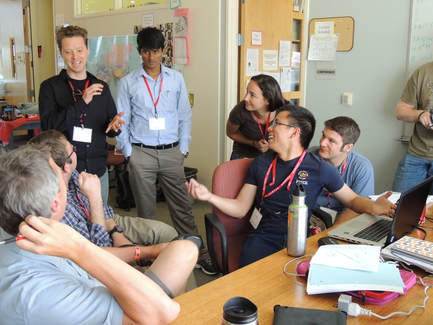IsoCamp"I had an amazing experience attending IsoCamp. It will remain one of the most memorable experiences of my education and training." The IsoCamp training course was launched at SIRFER in 1996 to train students in the fundamental theory underlying isotope fractionation processes across a broad spectrum of ecological and environmental applications. Its scope spans plants, animals, geochemistry, terrestrial ecosystems, marine and oceanic systems, paleoclimates, and the atmosphere. After 24 years at SIRFER, IsoCamp moved to the University of New Mexico Center for Stable Isotopes in 2021. IsoCamp website link: https://isocamp.org/ |
